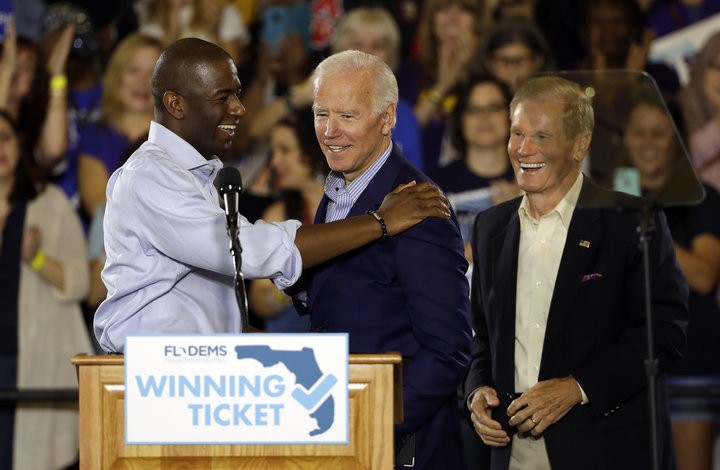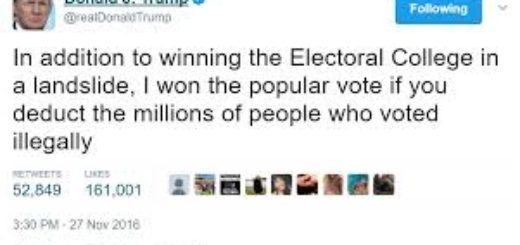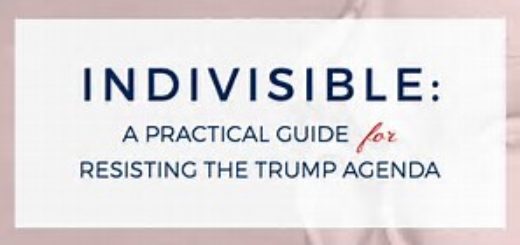Disinformation, DeSantis Mischief Probable for Florida’s Abortion Election
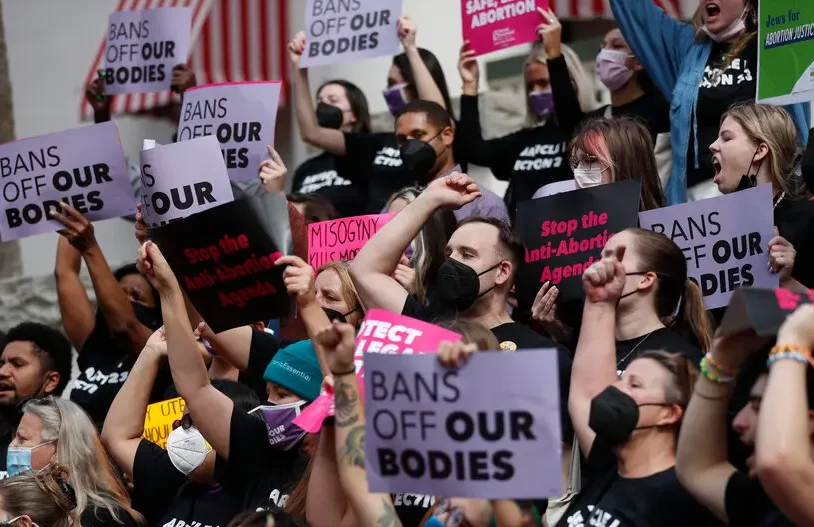
Supporters of abortion rights rally outside Florida’s Capitol in Tallahassee in 2022. Photo by Octavio Jones for the NY Times.
Florida’s 2018 midterms and the notorious 2000 presidential election are cautionary tales about close elections.
Abortion on Ballot in Florida
All eyes will be on Florida this election day as voters go to the polls in November to decide whether the right to an abortion will be enshrined in the state’s constitution. A yes on Amendment 4 would guarantee access until “fetal viability” (24 weeks).
Meanwhile, Florida’s six-week abortion ban is now law.
The referendum must be approved by 60 percent of voters. That might be a high bar for passage when you consider abortion referendums in other reddish states. For example, Kansas in 2022 passed abortion access with 59 percent of the vote. In Ohio in 2023, it gathered 56.7 percent.
Political Theater
And, of course, the deception has begun. Anti-choice Florida Gov. Ron DeSantis announced that a yes vote “will eliminate parental notification for minors that’s written in a way…to intentionally deceive voters.” (Not true.) Or the time DeSantis claimed the amendment “will mandate abortion until the moment of birth.” (Nonsense.)
There is speculation that even if Amendment 4 clears the 60 percent threshold, DeSantis will lead a court challenge based on allegedly conflicting ballot language (we’ll get to that).
The governor doesn’t like taking no for an answer. in 2018, Floridians by a margin of 65-35 chose to restore voting rights to convicted felons except those convicted of murder or a sexual offense (also an Amendment 4). DeSantis then compelled the Florida legislature to require the former felons to repay all fines and fees before regaining the right to vote. The resulting chaos and uncertainty was political theater for Gov. DeSantis.
Florida does seem to have a checkered past regarding close elections. Here are two famous examples.
The 2018 Midterm Election
In the 2018 midterm election in Florida, both the senatorial and gubernatorial elections were close enough to mandate recounts.
Democratic gubernatorial candidate Andrew Gillum was the first to fall. A mere 33,584 votes (.41%) separated Gillum from Republican candidate Ron DeSantis, mandating a machine recount. DeSantis held.
Weeks later, Gov. Rick Scott won his bid to become Florida’s junior senator after a manual recount required by state law showed incumbent Democrat Bill Nelson still trailing Scott by 10,033 votes out of more than 8.1 million cast. Nelson conceded.
This resounding thud to a 12-day raucous recount had all the makings of a reprise of the 2000 presidential election crisis that pitted Al Gore vs. George W. Bush. It delivered one parallel: Flawed ballot design.
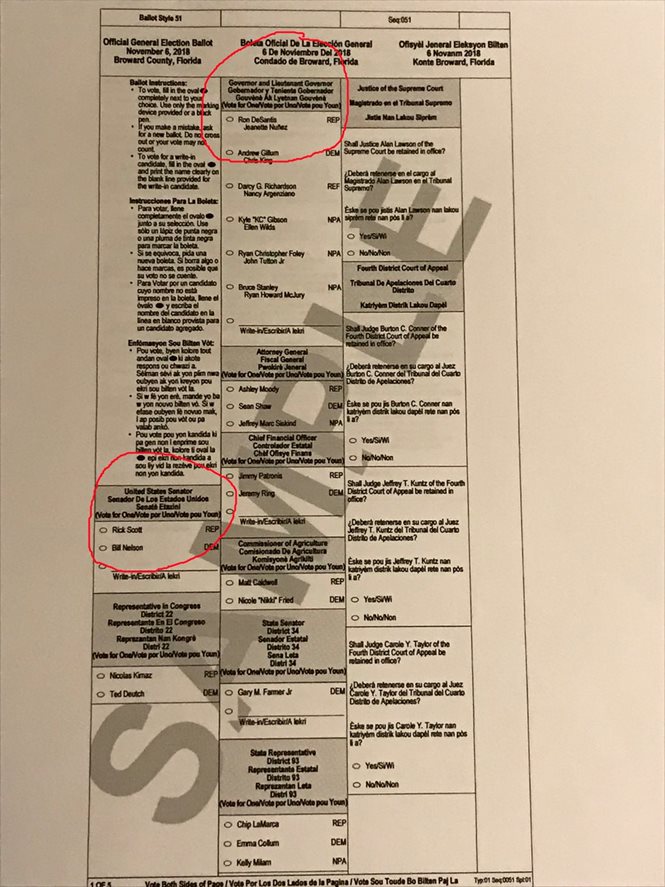
The ballot design in Democrat-rich Broward County seemed to minimize the Senate race, circled in the lower part of the ballot. Source: Ballotpedia
The 2018 Ballot Design
In Broward County, Florida, where Democrats outnumber Republicans by two to one, there were approximately 30,000 “undervotes” in the senatorial race compared to the gubernatorial race. In other words, many voters left their Senate choice blank.
It was simply poor ballot design, and Nelson’s chances went from slim to none. It seems that the selection box to vote for Senator was just difficult to find. That’s a tough way to lose an election.
Meanwhile, in Palm Beach County, Florida, Al Gore was having a tough time in his bid to win the 2000 presidential election.
Too Close to Call
On Wednesday morning, November 8, 2000, Americans woke up to the news that the presidential election was too close to call. It had all come down to Florida. A preliminary final count had Bush ahead of Gore by 1,784 votes, one-hundredth of one percent of the votes cast in Florida. That number would eventually shrink to a mere 537 votes.
Democrats were particularly concerned about the layout of the presidential ballot in Palm Beach County, Florida. Although he hadn’t even made a campaign stop in the staunchly Democratic county, arch-conservative Pat Buchanan, representing the Reform Party, tallied 3,704 votes…nearly 2,700 more votes than Buchanan received in any other Florida county. (The Palm Beach County ballot design was not used in any other Florida county.)
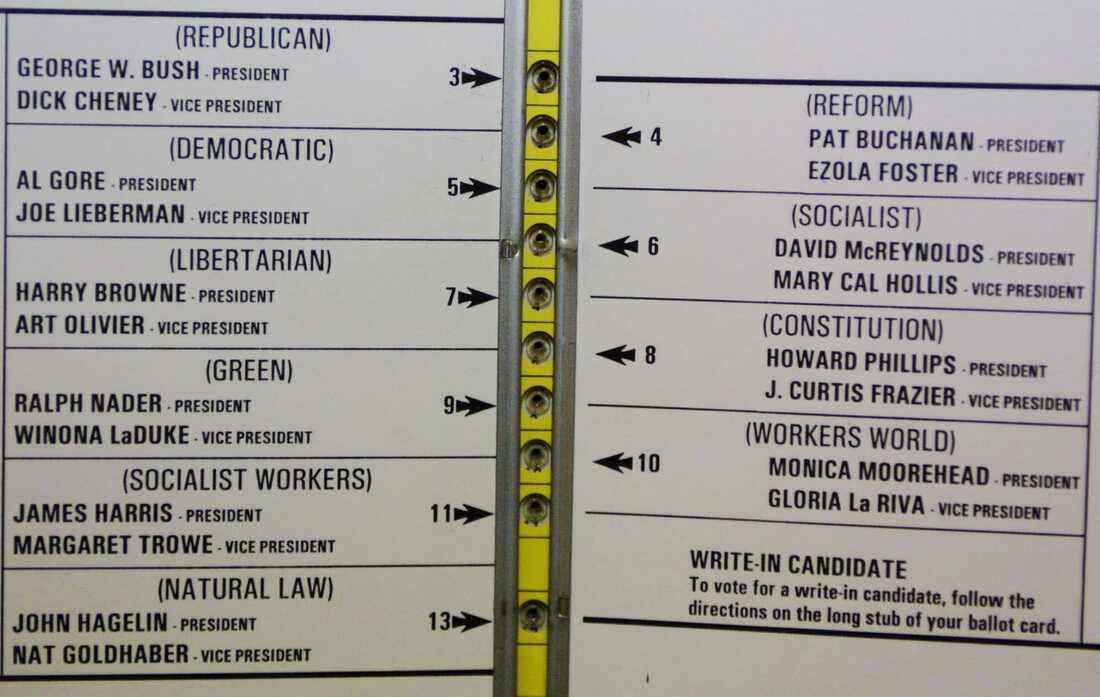
The ballot used in the 2000 presidential election in Palm Beach County, Fla. The ballot design left some voters concerned that they may have accidentally voted for Reform Party candidate Pat Buchanan instead of Democratic presidential candidate Al Gore Source: NPR
Further, more than 29,000 ballots in Palm Beach County were excluded–thrown out–because they contained votes for more than one presidential candidate. Lawsuits flew from Palm Beach County residents who thought they had mistakenly voted for a candidate to the right of Attila the Hun.
It was estimated that if Gore had received just 10% of questionable votes, he would have defeated Bush in Florida and captured the state’s 25 electoral votes needed to win the presidency.
You know the rest: the US Supreme Court stopped the recount and George W. Bush became our 41st president. Significantly, Al Gore stoically accepted the decision and exited the spotlight.
Court Battle?
Accompanying Amendment 4 on the November ballot is Amendment 3, which would legalize the possession of up to three ounces of marijuana for adults 21 years or older. Predictably, Gov. DeSantis has conflated the abortion and pot referendums, saying, “Once people figure out how radical both are, they are going to fail. They are very, very extreme.”
Political gaslighting aside, supporters of reproductive rights are gearing up for a serious court battle if “Yes on 4” clears the 60 percent threshold. Specifically, the DeSantis forces are eying a post-election collision between the Amendment 4 ballot language and the tortured legal history of parental notification and consent.
Ballot language: “No law shall prohibit, penalize, delay, or restrict abortion before viability…”
State Sen. Erin Grall, who sponsored Florida’s 2020 parental consent law: “Any court in Florida would have a difficult time upholding our parental consent statutes if this passes because of the word “restrict” in the amendment.” The battle is joined.
Progress Florida
Amy Weintraub is the reproductive rights director of Progress Florida, a proponent of “Yes on 4.” She was around when the last Amendment 4, which restored voting rights for most felons, was shredded by the governor’s disregard for the will of Florida voters. They’ll be ready this time around. Weintraub told me:
We are confident that our language is as clear as it can be. It is up to us to get the truth out. Our legal team is preparing for any hijinks by the governor of the legislature. We do expect Floridians to want government out of health care decisions, including abortion.
